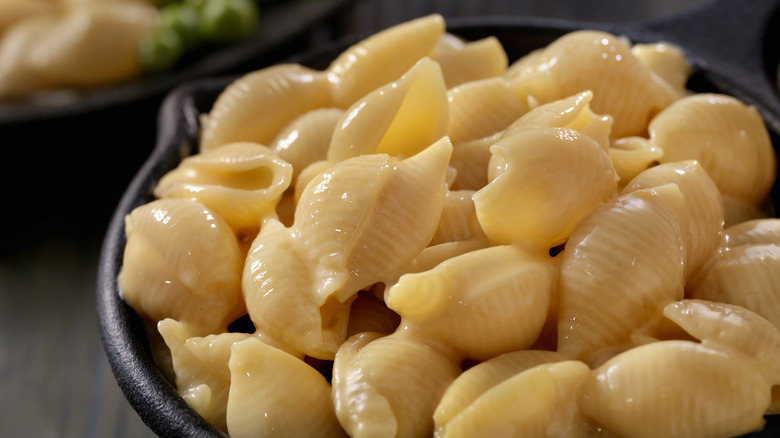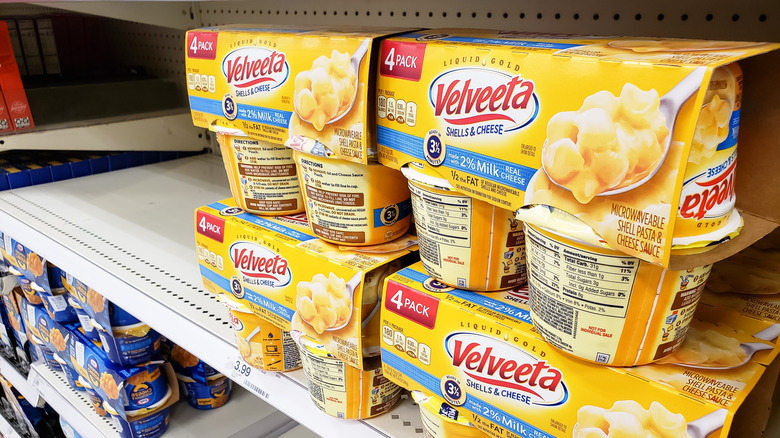The Velveeta Shells & Cheese Lawsuit Goes Cold
Don't you hate it when you read a food label that promises a meal will be done in a precise number of minutes, but it actually takes longer? Does it fill you with millions of dollars worth of anguish? This was apparently the basis for a conflict Kraft faced until very recently. After first heating up back in November of 2022, a court battle over Velveeta shells and cheese has officially gone cold, according to the latest reports from Today. The class action lawsuit, which was pursued by a woman from the Sunshine State, alleged that the Kraft food company engaged in a number of harmful practices with the packing and sale of their product, including false advertising.
In our very non-legal assessment, the case hinged on whether the judge saw a clear and present danger posed to consumers by the packaging's claim that the food would be "ready in 3 ½ minutes" when in fact, 3 ½ minutes is simply the cook time listed in a single step of the instructions. Prior to cooking, a consumer would have to stir in water after taking off the lid of the pasta container. While that sounds like it would take no time, it's technically more than that. So the plaintiff sued to the tune of $5 million. Unfortunately for the plaintiff, U.S. District Judge Beth Bloom disagreed, granting Kraft's motion to dismiss in a July 27 ruling.
Why did Judge Bloom dismiss the Velveeta Lawsuit?
According to the plaintiff's filing, the labeling constituted a violation of "Florida's Deceptive and Unfair Trade Practices Act by engaging in unfair methods of competition, unconscionable acts and practices, and unfair and deceptive acts and practices." Because these accusations were being leveled as part of a class-action suit, the plaintiff also insisted that they didn't have to prove they individually suffered from the purchase of the Velveeta product, as it had been sold in thousands of locations.
Judge Bloom provided a 13-page ruling that argued in part that the plaintiff hadn't established legal standing because she hadn't shown that she experienced any actual suffering as opposed to hypothetical harm. It's not clear that the plaintiff actually tried to prepare the pasta at all. She had also failed to convince the court that the labeling for Velveeta shells and cheese was "plausibly" deceptive.
Of course, if the company's packaging were so false as to render the product completely useless or inedible, this would be grounds for a genuine suit, according to Judge Bloom's language. Of course, none of this even gets into the question of the variability in cooking times that could occur when the product is heated in microwaves with different wattage levels. In theory, perhaps Kraft could change their label from "Ready in 3 ½ minutes" to something like "cooks in the microwave in 3 ½ minutes" for clarity, but the corporation is under no legal obligation to do so.

